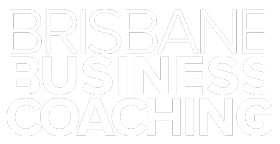If you're looking to start a company, having a guide is essential. Though there are a multitude of ways to brainstorm, a business plan is a useful and commonplace way to write it out and set concrete goals with actionable steps. Whether you're actively in the process of creating a company or you have an idea, using the BP model offers a plethora of benefits.
For those who have no idea how to get started, don't worry. Our team at Brisbane Business Coaching is here with a guide for you. Read on to discover how to do a business plan.

A BP is the launching point for your company. The document acts as a blueprint to get your needs in order before you enter the market. The guide should be a living and breathing document, meaning that it adapts to the needs of your company. The business plan can also be a beautiful point where you and your collaborators get together and parse through every aspect of the company.
Without a written document outlining the purpose of your company, it's challenging to maintain your clear vision through the process. Though you do not need a BP to have a successful venture, the guide makes your life a lot easier. The reasons to write up the document are various.

Are you wondering whether your company or venture idea could benefit from the process of writing up a guide? Maybe you've heard people around you or online advocate for the lean startup or fail fast methodologies. These methods rely on fast, and often rash, actions and decisions rather than taking time to write up guidelines.
A business plan is essential if you're serious about starting a company. Here are a few reasons why,
Unless you have a mountain of excess capital that you don't mind potentially wasting, you want to make sure that your company idea will succeed before you get started. A business plan is a detailed and thorough way of checking whether your idea will flourish in the market.
The market analysis component of crafting guidelines is the part where most people find out the fate of their concept, whether it will flop or flourish. With the research, you'll be able to focus specifically on the ideas that project the most success without wasting time, resources, and money.
Once you've crossed the threshold from analysing the idea to developing the concept and executing it, having a business plan is crucial. Both the operational and financial objectives of your endeavour come into perspective through the guide. Having the papers will give you a place to start.
You'll be able to see a concrete number for the budget, as well as which direction to take for marketing. When you craft the budget and marketing section, your target audience becomes clear. You also define what makes your company unique, how you should price products and services, and what media will best deliver your marketing messages.
Without a clear concept and concrete methods to achieve success, you'll have a harder time convincing investors to put funds into your project. Both venture capitalists and angel donors need outlines of what exactly they are investing in and how it will generate returns. A presentation of your ideas will catch interest, but most investors require a document they can analyse to feel comfortable donating money.
Know that the plan you submit will need to undergo review by every potential donor before you receive funds. Prepare to face a plethora of questions about competition analyses, projected profit, and other concerns that donors could bring to the table.
Without startup and operating capital, you lower your chances of successfully getting your company off the ground. Without a solid business plan, you will not receive debt financing from banks. You also will not receive equity financing from angel donors. These institutions want to have hard-copy, detailed guides of what they are helping to finance.
The need for funds does not stop once you've established the company and start seeing success. If you need to buy new equipment, fund new projects, or compensate for market downswings, you'll need an updated plan of action to reach out to funding providers.
Most individuals don't get past the conceptual section of creating their company. The falls happen for a variety of reasons, one being a lack of vision for the future. A business plan is a clear-cut vision of the future. The document is useful as a base for planning meetings once your company has established its footing.
Be open to editing the document whenever you or a partner/collaborator determines that new additions or modifications are necessary. Review the guide as frequently as you and your team need to update, change, or revise goals, aspirations, and partnerships in the company.
Your product or service likely has competition. The BP will lay out who the competitors are, their pricing schemes, and other essential details. All this information will help you assess the viability of the market and what you need to do to outperform the competitors.
Your financiers also will want to know the market competition to anticipate what they can expect in returns. If you have an excellent idea that no competitors have exploited, you may be onto something that could be lucrative for all—or a total black hole in investment funds. The market analysis helps you position your project and anticipate potential pitfalls.
During the startup process, you'll make a plethora of decisions that could make or break your company. Once you've become established, the decision-making doesn't stop. You'll constantly be dealing with managing crises and choosing between one path or another. With a business plan in your hand, you'll be able to go through these processes with more finesse.
Plus, the act of sitting down and thinking every aspect through will have already answered some tough questions before you even started the company creation process. A guide will help you keep your broader growth strategies in line with day-to-day decisions.

To know how to write a business plan, you'll need to know the various components that you should include. These are a couple of sections that help you break down the document and organise things,
Executive summary: The basic outline of your company, a mission statement, and why you are doing this.
Market opportunity: The current outline of whatever market you're looking to break into and how your company will fit into it.
Marketing and sales strategy: The marketing tactics and techniques you'll use to expand your brand, draw in customers, and grow.
Operations plan: The goals, procedures, and timeline of your company.
Team strategy: How you'll meet the needs of your team members and help them grow within the company. List roles and responsibilities here.
Financial projections: The investment, make money, and profit turning plans and projections.

With the outline in mind, you'll want to start brainstorming and writing the business plan. The conceptual phase takes a while, anywhere from 6 months to a year depending on the idea. Sit down with your collaborators and let the brainstorming begin. A guide to a company is a large document to write. You won't be able to complete the process in one or two sessions. All you need to get started is time, an idea, and a team of collaborators.
A mission statement is essential to make a business plan. A few questions can help you get started developing your purpose:
With a mission statement and idea in mind, you can dive into market research. Also known as the conceptual phase, you'll look into the market that you want to enter. When you research, ask yourself these questions,
• What is the state of the current market?
• Who is your audience?
• What is your competition?
If you think that joining the market is feasible after research, now it's time to differentiate yourself from the competition:
You'll want to specify financials, projections, and any future expectations that you have for the company:
The end of your business plan should include an ask for your company's needs. Detail what you need, how you'll use the help, and what you'll give investors, partners, or lenders in return.
A business plan is essential to seeing long-lasting company success. If you need help getting started, a company coach like Brisbane Business Coaching can help. Dive in to start planning immediately.
Understanding cash flow is an integral part of running a successful business. It's the only way to know how profitable your business actually is and prevent financial problems that leave you in debt or out of business.
So what is cash flow exactly?
This term refers to the amount of money moving in or out of a business. It's key to understanding a business's liquidity.
Let's explore some tools to help with understanding cash flow.

Balance sheets should be completed monthly as well as at the end of every financial year. They give you an idea of the value of your business by tracking your assets and liabilities.
Some examples of assets include property, equipment, cash, stock, land, and money owed to the business by individuals or other businesses.
Some examples of liabilities include loans, credit card debt, and money owed to suppliers or tax collectors.
The value of your business, or your net worth, is equal to your assets minus your liabilities.

A profit and loss statement, also known as an income statement, summarises a fiscal quarter or year with a snapshot of all expenses and revenues.
It shows you when your income is no longer sufficient to pay all your expenses by tracking your income and expenses over a period of time.
If you find that you are not making a profit due to increasing business expenses, you might want to consider raising your prices. You should always ensure you are making a profit.

Cash flow statements allow you to track the money flowing in and out of your business over a certain period of time. They help you track seasonal trends and plan ahead for recurring payments.
These statements are also a great way to spot liquidity issues. You want your business to have enough funds to purchase assets and pay bills. Cash flow statements help you visualise how much cash you have on hand each month.
You can create a statement by making a list of all your transactions, both incoming and outgoing. Make note of your total incoming expenses and your total outgoing expenses.
Your cash flow statements should have the following columns.
Be sure to clearly state on your statements whether your numbers are actual or estimates and whether they include GST (Goods and Services Tax).
There are three major types of cash flow. These include cash flow from:
It's important to understand all three to get an accurate snapshot of your business's value and net cash flow. You should distinguish between the three types on your cash flow statements. Next we'll discuss what type of transactions fall under each category.
This refers to the everyday transactions that come with running a business.
In the operations section of your cash flow statement, record your net income from the goods and services you sell as well as accounts payable (money you owe) and accounts receivable (money owed to you).
Examples include wages, income receipts, stock movements, credit card payments, and funding to and from suppliers. If your accounts receivable is increasing faster than your income from sales, it's a sign that you're going to have problems managing your debts.
Cash flow from investment refers to any investment activities of your business.
In the investment section of your cash flow statement, record the purchase or sale of equipment, property, investment securities, and any other long-term assets.
Negative cash flow from investment activities is not necessarily a bad thing. Your business may be making investments that will pay off in the long run, such as investing in research and employee development.
Investment activity is an essential part of a business's growth.
Cash flow from financing refers to transactions with your creditors and owners.
In the financing section of your statement, record issues of shares or bonds, loan payments, money put into or borrowed from the business by the owners, and dividends paid out.
Investors may be particularly interested in a business's financing activities. It's a good insight into a company's capital structure management and overall financial health.
It's not enough to simply have positive cash flow from financing activities. A company could take on new debt and still show a positive cash flow for financing activities. This could mean a company is not generating enough revenue.

Cash flows may be simpler or more difficult to read depending on how large and how complex your business is. The most important figure in any statement is your net cash flow, which is the amount of cash you have left after paying all your monthly bills.

Net cash flow will be listed at the bottom of your statements. If this number continues to grow from month to month, your business is thriving and growing. If your net cash flow stays roughly the same from month to month, this might not be cause for concern, unless the number is low.
If you notice your cash reserves are consistently decreasing, you may have issues paying your debts, requiring you to rely on credit to pay bills. If your net cash flow is ever negative, it means you are spending more money than you are earning.
These statements help you visualise negative trends so you can act quickly to increase your cash reserves.

Your cash flow statement will highlight issues to help you preemptively fix financial problems. Some warning signs on a cash flow statement include:
This means you have more money going out than you're bringing in.
This means you aren't profitable. You are spending more than you're earning.
This means you're engaging in more business than you have the resources available for.
This occurs when outstanding receivables or unpaid invoices begin to pile up.
This won't appear on your cash flow statement but frequent turnover of staff can spell trouble for your business. If you are continually replacing employees, you may be wasting money investing in and training employees who ultimately aren't an asset for your business.
Once you understand cash flow statements, you can forecast incoming and outgoing cash for the coming months.
This helps you prepare in advance for shortfalls and surpluses and act accordingly. When surplus money is forecasted, you may want to put money into short-term investments. When income shortfalls are forecasted, you may want to apply for a loan in advance.

If your cash flow statements show a deficit in profit, what can you do to boost profits other than raise prices?
You can increase the number of customers you service. This can be done through customer outreach and marketing. You want as many people as possible to know about your business and the services you offer.
You should have a marketing plan that includes marketing research.
You can also increase the volume of products and services your existing customers purchase from you. This can be done through improving your products and adding new products and services.
Finally, you can review your variable expenses. These are expenses such as advertising and shipping charges. You may need to scale back some of your variable expenses to improve your bottom line.
Using balance sheets, profit and loss statements, and cash flow statements will help you identify small issues before they turn into giant liquidity problems.
These financial tools are key to understanding this process and will aid in your understanding of the value of your business and trends regarding profitability.
With a little financial tracking, you'll be able to increase profits and stay open for business.

Brisbane business mentoring helps owners, management, and other top-level members of your company hone their skills as mentors. Our training program helps participants learn to inspire, guide, and be proactive in their mentorship, creating consistency and excellence in all stages of business development. Contact us today to set up a consultation with our business mentoring experts.

Time management is paramount when running a company. It's all about knowing where to focus your time and why. When employees have good time management skills, your company can streamline operations and be more efficient. Set up a consultation with Brisbane Business Coaching to learn about our time management solutions.

Outsourcing administrative roles and other positions gives your company more time and money to focus on what matters: the customers. Brisbane Business Coaching offers consultations for staff recruitment and outsourcing. Set up a meeting with our recruitment and outsourcing experts today!

Building a strong company starts with developing your staff to be hard-working, efficient members of a team. Brisbane Business Coaching can train your team members in customer service and other fields to help your organisation attain your desired performance and achieve results. Set up a meeting with an expert staff member to inquire about staff development today.

You can't have a company without the essential foundation of sales and marketing knowledge. Brisbane Business Coaching offers coaching on sales and marketing, so your team gets your company's name out there positively. Contact us today to set up a consultation with our coaching professionals.

The Profit First Formula builds your company sustainably to create long-term success. Brisbane Business Coaching offers coaching on this valuable formula. With this knowledge, you'll make record profits to spend on what your company needs. You'll also be able to master your cash flow and help your employees generate more money. Check out our mentoring services for profit first / profit mechanics today to get started earning higher profits.

If you don't know where your cash is going, you can't be sure that your company is running successfully. Brisbane Business Coaching guides you through cash flow analysis so that you can learn valuable lessons about finance and revenue streams. You'll understand how to quickly detect profit loss, missing funds, profit channels, and more in no time with our easy and informative coaching sessions. Contact us today to learn more about our cash flow analysis coaching services.

Everyone knows that owning and running a company requires intensive planning. A sound and concrete plan that clearly outlines the company's purpose, vision, goals, and strategy will help your team build the right foundation and accelerate results. If you're not sure how to best plan your company and get it on the road to success, contact Brisbane Business Coaching for information about our business planning coaching.

Brisbane Business Coaches are experts in various fields. Our coaches add value to your company by identifying issues and problems, then helping you create actionable plans to solve those problems. From there, your brand will be able to flourish, and you can rest easy knowing that your employees are learning from experts. If you're interested in learning more about our business coaches and their areas of expertise, contact us today!

Brisbane Business Coaching offers coaching on a variety of subjects including cash flow analysis, business planning, sales and marketing, staff development, and many more. Regular work with our coaching staff will help you understand your company better and align your actions with your goals. We'll inspire managers and team members alike to rise to any challenge. Set up a meeting with our experts to learn more about our coaching services today.

If you're just starting out, you could benefit from getting a mentorship or coaching session from our experienced professionals. Maybe you don't know enough about sales and marketing, or you need some help to align or create a plan with your company goals in mind. Brisbane Business Coaching is here to help you start and grow your company. We'll help you get your up-and-coming company on the road to success! Set up a meeting with us today to learn more about our ideas for start-ups.

Don't want to pay exorbitant prices for someone to do your SEO and digital marketing for you? Not an issue. Brisbane Business Coaching can help you manage your marketing yourself. We'll coach you on search engine optimisation, digital marketing, market research, strategy, and everything else you'll need for successful marketing. Contact us today and let us know how we can help you learn more about DIY business marketing.
For anybody trying to start, grow, or reinvent their firm, business coaches can offer unique insights and critical advice that you wouldn't get elsewhere. From coaching and mentoring to helping you develop a sound strategy, coaches can pass on a heap of benefits.
If you don't know where to start, or you are unsure what you are missing in your struggling profit margins, a business coach can offer a new set of experienced eyes. Even better, you don't have to look too far. You'll find some of the best business coaches in Brisbane!
If you need help identifying issues within your operations or creating an actionable plan, Brisbane business coaches may have the guidance you need. We've created this handy guide for you.

Donna Stone is results-focused and passionate about helping you achieve your goals as effectively and efficiently as possible. She draws on more than 30 years of experience in business, so she has seen just about everything there is to see. She's perfectly placed to — as she puts in — ‘do what needs to get done’.
Donna's approach is all-round and comprehensive. She intends to both guide and motivate you so that you can achieve your own goals on your terms. But when needs to, she can be hands-on and get to work with you.
Her mentoring and coaching has three primary strands: Business Growth & Development Coaching, New Business Start-up Coaching, and as a Mentor & Business Trainer.
Find out more about Donna here.

Amongst Brisbane business coaches, Kerwin Rae is undoubtedly one of a kind. His spiritual approach to life translates into his business coaching, too. He has a unique vision to help you with mindset strategies, planning and sales, and marketing strategy. Kerwin has a long record of working in Brisbane and helping its company owners.
Kerwin offers a three-pronged approach to coaching: Fast Growth Summit, Nail It And Scale It, and K2 Elite Mastermind Mentorship.
If you are interested in learning more about Kerwin, click here to find out more.

Dr Greg Chapman is the head of Empower Business Solutions. He spent eight years working in the United Kingdom and the United States and returned to pass on his unique management and brand development experience to Australian firms. As a global leader, Chapman has a solid understanding of international best practises. He has more than a decade of experience passing that on here in Brisbane and elsewhere in Australia.
One of his key areas of expertise is advising couples and families who are either looking to get into business together or already running a firm together. He even wrote a book called, Married to the Business: Honey I Love You but Our Business Sucks! The book offers business wisdom balanced with a refreshing take on how couples can jointly and successfully run a company.
Besides that book, he's written a further two, which reflects the breadth of his expertise.
Dr Greg's expertise offers a leveraged, integrated online strategy, but he coaches for and on a much broader profile. He has developed sound tools, resources, and business coaching insights for:
He has created a 7-Step Success Program that coaches you through everything from profitability analysis through to the management processes.
If you think Empower Business Solutions could be for you, check Dr Greg Chapman here.

Jean-Marc Barbeau leads coaching through Better Business Freedom.
A qualified Chartered Account and NLP Master coach, Jean-Marc's experience encompasses small businesses and the corporate world. As a business coach, the keys to his mentoring include creating a strong roadmap and strategy and a solid framework for you to build your brand. His philosophy is that your company should enable your freedom rather than restrict it, so it aims to help clients identify changes that will put them back in control.
His key programs include Freedom Strategy Session, a Freedom Boardroom program, and Freedom Mastery Program:
Click here to find out more about Jean-Marc Barbeau.

Tristan Wright is the founder and CEO of Evolve to Grow, a business coaching company. He refers to himself as the original Business Sherpa, which reflects how he sees his role: to facilitate your trip to your ultimate objective, rather than do it for you. With his personal story as context, he is keen to enable you to grow on your terms.
Evolve to Grow will help you think out complicated issues, find blind spots, and make the most of new opportunities. Often, the skills that Tristan will help you with are soft skills you might have overlooked while running your venture.
Tristan likes to emphasise a focus on what you can control, and he takes a structured approach to coaching:
If this process sounds helpful for you, click here to contact Tristan.

John Flett leads Scope Business Coaching. John and the team like to differentiate themselves from many others. Rather than providing set tools for success that you can plug into your operations, Scope will design a customised approach that meets your firm's needs.
Scope's coaching method takes in all elements of your business, including your personal and company goals and aspirations. As John sees it, success requires considering the whole picture. Unless you see the bigger picture, you won't have a chance of reaching your true potential.
The Scope training rests upon five fundamental values:
These values aim to create an open environment where clients can build trust and rapport with their coaching team.
Scope recognises that fostering passion is key to maximising your true potential, which is what will drive you on during challenging moments. John's team will coach and advise you on your terms, rather than trying to imprint a one-size-fits-all policy on your business. With this coaching, you can find a resolution to your company's unique problems and goals.
If you choose to go with Scope, you can find out more about it here.

At Business In Bloom, Carolyn Ryder coaches for small business success. Carolyn and her team can guide you through starting a business, expanding your team — and the many challenges that go with it — and general problem-solving.
To do this, Business in Bloom offers potential clients two options: A Small Business Strategy Session and its 3-Month Small Business Coaching Package.
If you like what you see, click here to find out more about Business In Bloom.

Paul Farmer is the business coach behind Mentoris Group. To get you where you want to go, Paul and his team will start you off with three questions:
For Mentoris, clarity and direction on the Why's of your brand are critical to a successful strategy and achieving your goals.
Key strengths at Paul Farmer's Mentoris group include Business Strategy, Building Leaders, and Group Workshops:
You can find out more about Paul Farmer and Mentoris here.

Wayne Griffiths leads Raffino, a business coaching and consulting firm working with family businesses and manufacturers. Raffino aims to help manufacturers with three key areas: accelerating their growth rate, becoming more efficient, and becoming far more profitable.
Find out more about Wayne and Raffino here.

Faye and Rob Caughey founded Kaibizzen as a coaching practice for performance-focused business owners. And for this, they employ their two specially designed programs: The PPP Method and Married In Business.
If either of these programs interests you, you can look further here.
There are many times when running a business when you don't know where to turn. You know there is a problem, or that you need an answer, but you don't know how to get what you need. Brisbane business coaches can make the difference you need to start, grow, or evolve your company.
Take a look at this list today for the best business coaches in Brisbane, so you can start moving your company forward tomorrow.
